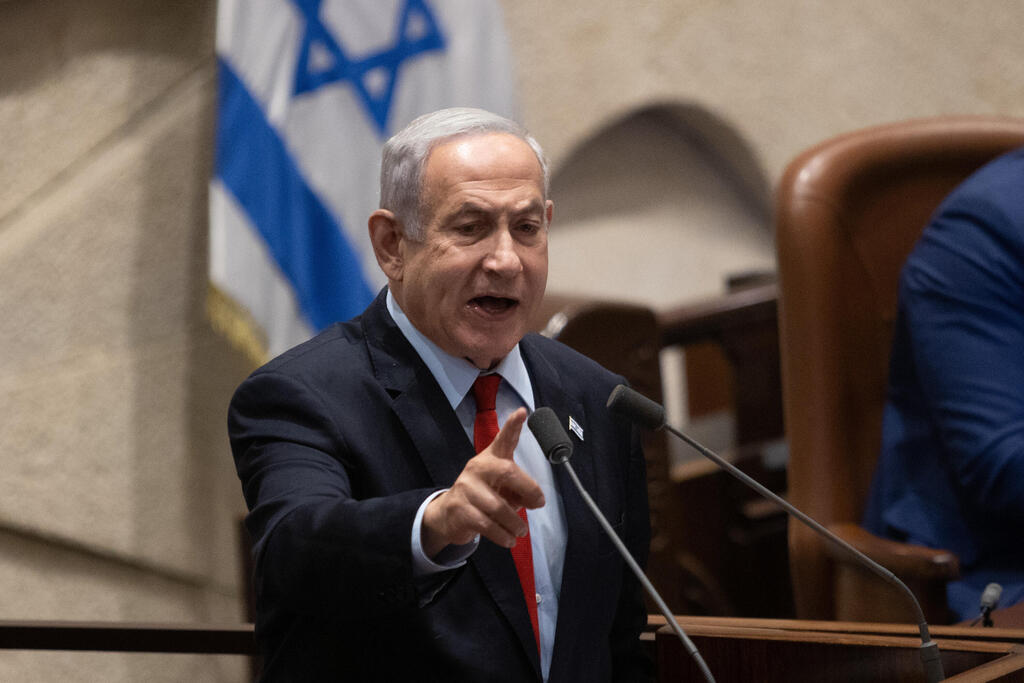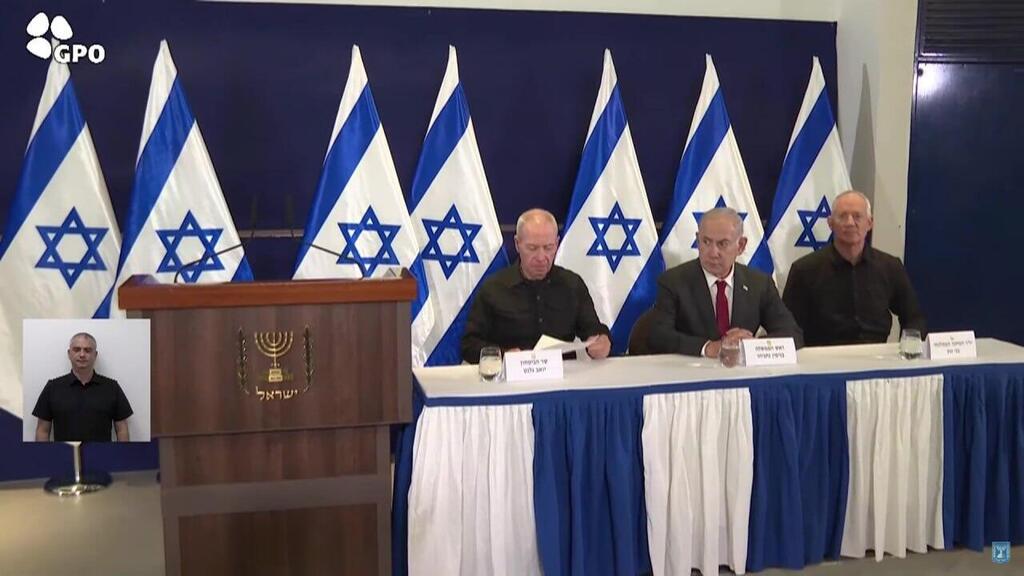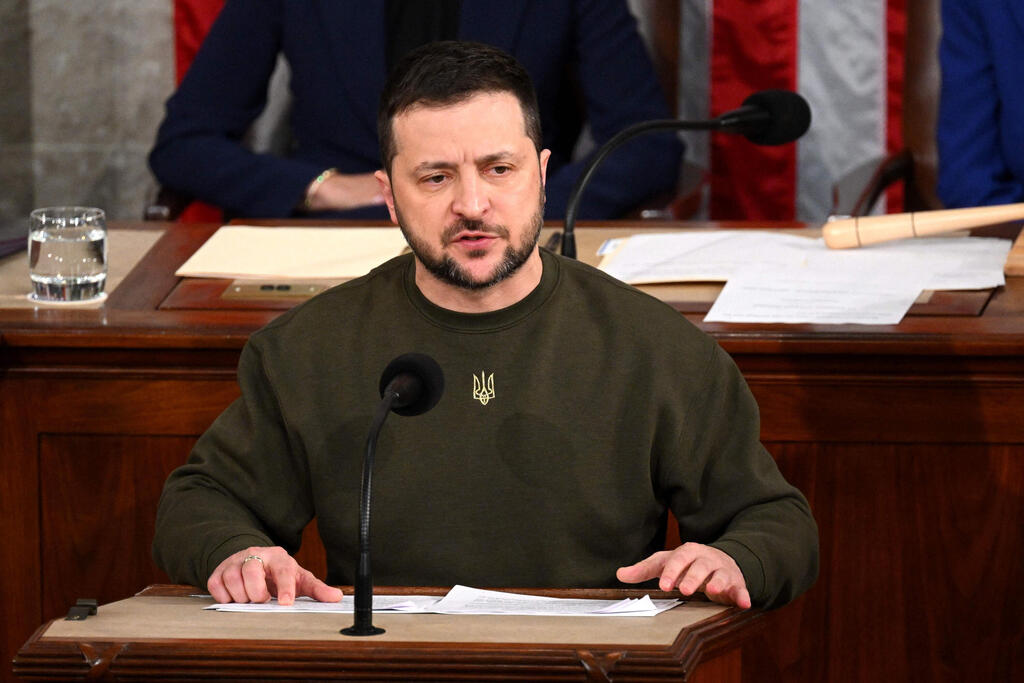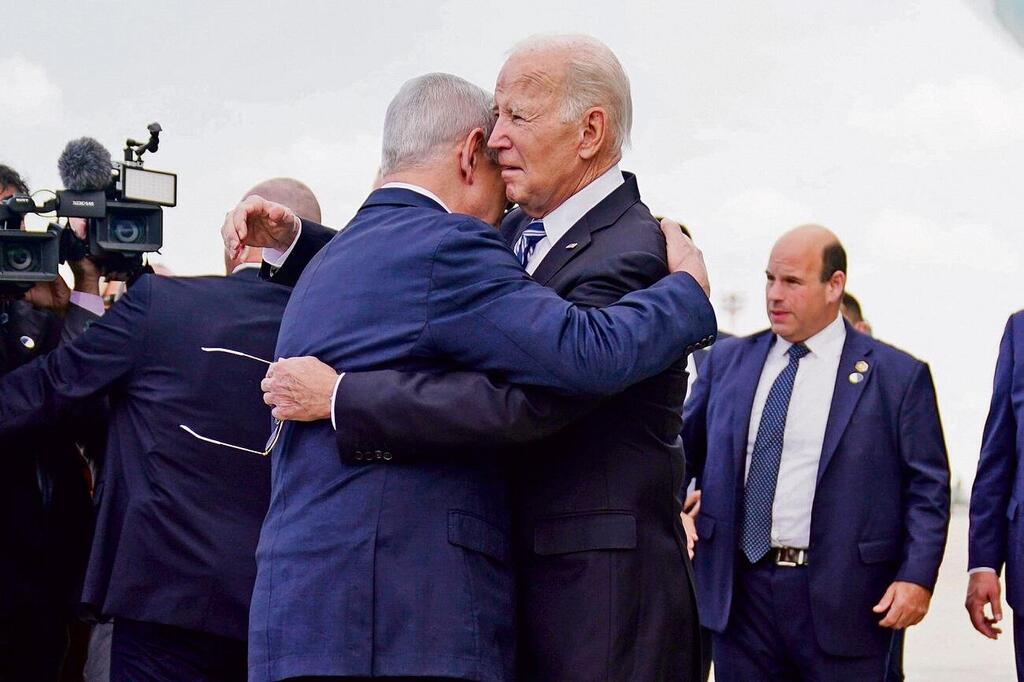Getting your Trinity Audio player ready...
In the recent photo from the meeting between U.S. President Joe Biden and Prime Minister Benjamin Netanyahu in Tel Aviv, subtle visual cues from each leader were evident. While President Biden and President Isaac Herzog strictly adhered to a dress code of a dark suit, white polo shirt, striped tie, and a U.S. flag pin on the left lapel, Netanyahu opted for a slightly more relaxed wardrobe choice: a dark suit, white polo shirt and an Israeli flag pin, notably without his signature tie.
Read more:
It's no coincidence. Lately, Netanyahu has often foregone wearing a tie, aiming to shift from an image perceived as detached from the public over the past year (particularly during the early days of the war) to one that's more approachable and relaxed. He's aiming for a more "everyman" appearance.
5 View gallery
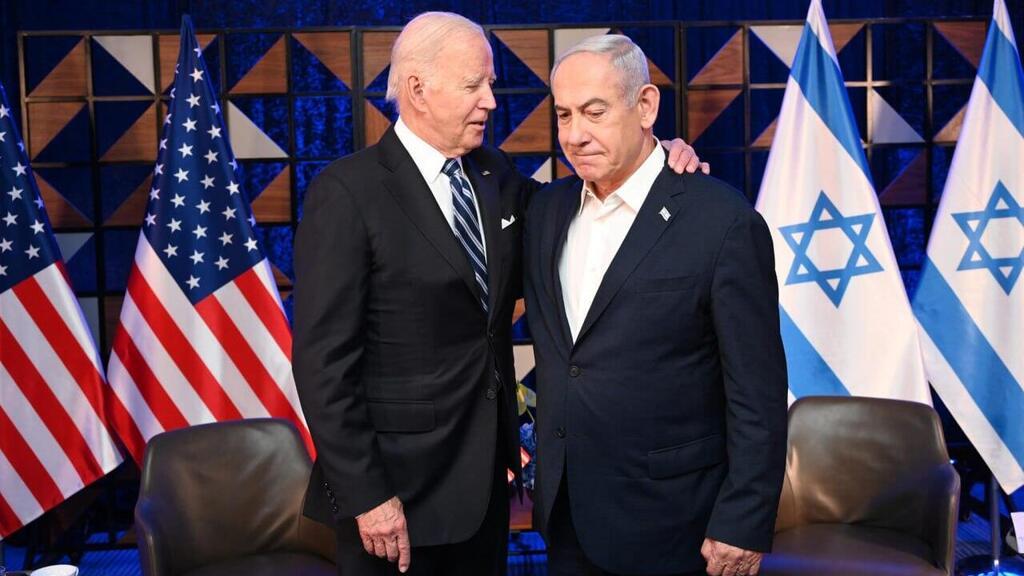

Prime Minister Benjamin Netanyahu, sans tie, meets US President Joe Biden in Tel Aviv
(Photo: Haim Zach, GPO)
Netanyahu consistently presents a polished appearance, supported by a dedicated grooming team, even in the grips of war. This is evident in his meticulously styled coiffure and accentuated eyebrows, especially noticeable given his graying hair. It's worth dwelling on changes in Netanyahu's appearance since the tragic events of the October 7 massacre.
This isn't about fleeting fashion choices, but a deliberate message complementing his public statements. During the first week of the conflict, Netanyahu was seen in public addresses, cabinet meetings and meetings with foreign dignitaries like European Commission President Ursula von der Leyen donning a dark suit and white polo shirt, with or without a tie, a tired look even in peacetime.
In the swearing-in of the wartime government last week and the opening of the Knesset Winter session on Sunday, a transformed Netanyahu emerged. The previously aloof leader's refined wardrobe gave way to somber black attire. Last week, Netanyahu stood at the Knesset podium dressed in a black shirt paired with a matching jacket. Throughout the week, he consistently donned a black button-down shirt and black trousers. This was his chosen attire for cabinet meetings, meetings with troops and meetings with the visiting leaders of Romania and Germany earlier this week.
Over the years, Netanyahu and accompanying defense ministers have often sported black Uniqlo jackets, a popular winter staple among Israeli men. Yet, in his recent shift to a more relatable style, Netanyahu seems to be taking cues from National Unity Party leader Benny Gantz and Defense Minister Yoav Gallant. Since the war's onset, both Gantz and Gallant have frequently appeared in public wearing black. In contrast, Netanyahu's suits have traditionally lent him an air of being somewhat out of touch with everyday realities.
Netanyahu isn't the first leader to employ clothing as a means to communicate non-verbal messages to both citizens and global leaders. Ukraine's President Volodymyr Zelensky recognized and harnessed this power during the conflict between Russia and Ukraine. Through his wardrobe choices, he firmly established himself in the international arena. While Western leaders opted for suits and Putin for luxury Eastern brands, Zelensky donned a snug khaki T-shirt that showcased his resilience, complete with the Ukrainian army insignia positioned over his heart.
Zelensky donned the T-shirt for speeches at the European and Israeli parliaments, during TV interviews, and while visiting the wounded in hospitals. The choice of a T-shirt, a staple in many wardrobes, lent Zelensky a laid-back appearance. So much so that American economist Peter Schiff remarked on Twitter after Zelensky addressed Congress, "I understand that times are hard, but doesn't the president of the Ukraine own a suit?"
Netanyahu, who celebrates his 74th birthday on Saturday, is not anticipated to adopt a military T-shirt look. Moreover, this style was already embraced nearly 10 months ago by one of his main opposition groups, the Brothers in Arms protesters, who sported khaki T-shirts during demonstrations against the government's judicial reform plan across the country.
Additionally, Netanyahu recognizes the need to distinguish himself visually from military officials, who have already acknowledged their roles in the intelligence and leadership failures of the October 7 massacre.
Netanyahu is the Israeli politician most attuned to the significance of his public image, both in the media and beyond. A testament to the power of visuals is his embrace with Biden on Wednesday. Resembling a child rushing into the arms of a long-missed father, the moment made headlines around the world.
Netanyahu understands that history will remember him as a wartime prime minister, and contemporaneous photos will shape his legacy. He is determined to curate this image carefully.



